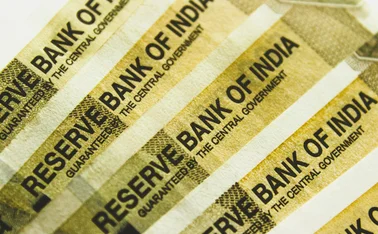
Poland cuts rates again as CEE states fight stagflation

The National Bank of Poland cut its benchmark interest rate to 3.75% today, the fourth successive month it has been reduced by 25 basis points – though its actions are seen as coming too late by many observers.
The rate stands in contrast to that in the neighbouring Czech Republic, where the benchmark rate of 0.05% was held steady today.
Piotr Bujak, chief economist at Nordea Bank Poland, said Poland's rate cut was widely expected, and predicted a further cut in March. However, he said the monetary policy council (MPC) has grossly mis-timed its policy easing, having waited until November to begin cutting rates despite repeated proposals to do so earlier.
"The majority of [the MPC members] have constantly underestimated threats to economic growth and the pace of the inflation drop. They started the policy easing very late – much too late," he said.
"They seem to be one of the most conservative central banks in the world at the moment."
The central bank said the cut was a reaction to the "considerable economic slowdown" in Poland, which was in turn limiting inflationary pressures, in a release accompanying the announcement.
Year-on-year inflation fell from 2.8% to 2.4% in December, which also dragged down households' inflation expectations, the release said.
Bujak said the Polish economy will bottom out in the second quarter of the year as activity picks up in the euro area, particularly in Germany – Poland's main trading partner.
By reducing the benchmark interest rate by a small and frequent amount, as opposed to implementing a larger cut earlier on, Bujak suggested the MPC had lost credibility in the market.
"People don't believe them. People think they are very much backwards looking, and just follow the inflation path," he said.
The Czech National Bank held its benchmark interest rate at 0.05%, in line with its forecast that inflation will remain around the 2% target throughout 2013. It also lowered its GDP growth forecast for 2013 from 0.2% to –0.3%, but predicted it would recover to 2.1% the following year as external demand improves.
The Bulgarian National Bank reduced its main rate by 2 basis points from 0.03% to 0.01% on Monday. It has been below 0.25% since January 2010.
Yesterday, its neighbour Romania maintained its benchmark rate at 5.25% for the eleventh month in a row, in the face of annual inflation running at 4.95%.
The National Bank of Serbia has steadily raised its key policy rate since June 2012 in response to rapidly accelerating inflation, and increased it again yesterday, by 25 basis points to 11.75%.
Inflation in Serbia has trebled from 3.9% to 12.2% over the period, and the central bank is tightening policy in an attempt to drag inflation back towards its 4% target (with 1.5% permitted either way).
The central bank's executive board believes low aggregate demand will help "generate strong disinflationary pressures" and push inflation back into the desired band.
Only users who have a paid subscription or are part of a corporate subscription are able to print or copy content.
To access these options, along with all other subscription benefits, please contact info@centralbanking.com or view our subscription options here: www.centralbanking.com/subscriptions
You are currently unable to print this content. Please contact info@centralbanking.com to find out more.
You are currently unable to copy this content. Please contact info@centralbanking.com to find out more.
Copyright Infopro Digital Limited. All rights reserved.
As outlined in our terms and conditions, https://www.infopro-digital.com/terms-and-conditions/subscriptions/ (point 2.4), printing is limited to a single copy.
If you would like to purchase additional rights please email info@centralbanking.com
Copyright Infopro Digital Limited. All rights reserved.
You may share this content using our article tools. As outlined in our terms and conditions, https://www.infopro-digital.com/terms-and-conditions/subscriptions/ (clause 2.4), an Authorised User may only make one copy of the materials for their own personal use. You must also comply with the restrictions in clause 2.5.
If you would like to purchase additional rights please email info@centralbanking.com








